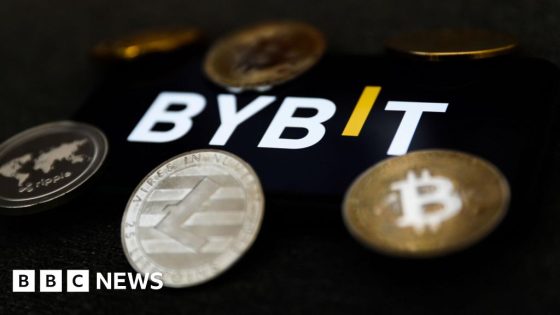On February 22, 2025, cryptocurrency firm Bybit reported a theft of $1.5 billion (£1.1 billion) in digital currency, potentially marking the largest crypto theft in history. The Dubai-based company’s founder assured users that their funds were secure and that refunds would be issued to those affected.
- Bybit reports $1.5bn crypto theft.
- Founder assures users their funds are safe.
- Ethereum's value dropped 4% post-theft.
- Bybit holds $20bn in assets.
- Company investigating hackers and reporting to authorities.
- Security concerns persist in cryptocurrency market.
Bybit, founded in 2018, has gained significant traction in the cryptocurrency market, boasting over 60 million users worldwide. The company holds approximately $20 billion (£15 billion) in assets. Following the theft, the value of Ethereum dropped around 4%, bringing it to $2,641.41 (£2,090) per coin. This incident surpasses the previous record set by the 2022 Ronin Network heist, which involved $620 million (£490 million) in stolen cryptocurrency.
Ben Zhou, Bybit’s founder, indicated that the loss could be covered by the firm’s existing assets or through loans from partners. He emphasized that all client assets are backed 1:1, ensuring that Bybit remains solvent even if the stolen funds are not recovered. The firm has reported the incident to authorities and is actively investigating the breach.
Security concerns in the cryptocurrency market have been highlighted by this incident, especially as the sector seeks to regain trust from investors. Notably, past thefts, such as the $350 million (£210 million) loss from Mt Gox in 2014 and the $41 million (£31 million) theft from Binance in 2019, have raised alarms about the safety of digital assets. The ongoing scrutiny of cryptocurrency’s speculative nature continues to shape public perception.
The recent theft from Bybit underscores the ongoing vulnerabilities within the cryptocurrency market. As the firm works to address the situation, the incident serves as a reminder of the importance of security measures in protecting digital assets.
































